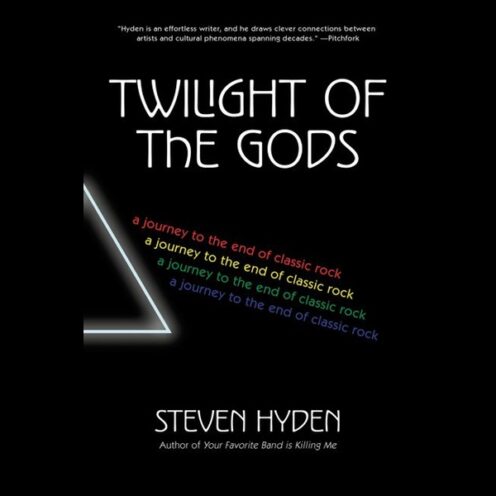
Twilight of the Gods: A Journey to the End of Classic Rock by Steven Hyden is just the journey I was looking for. In the day and age of staring at screens most of the day, reading a physical book was a great way to unplug. I read this book over three days and enjoyed every bit of it. The book is formatted as a double LP. Sides A-D contain tracks that denote each chapter. It’s a clever way to present the book and it’s little things like that which just add a little extra to the reading experience.
This book covers all walks of classic rock. Hyden talks about Led Zeppelin, Fleetwood Mac, and Bruce Springsteen, among many others. He touches on crucial points, too, including the fact that the white men in classic rock pulled influence from artists of color who never received the same kind of recognition.
He even acknowledges that it’s largely white men writing about said music at the time. These were points that weren’t just glossed over and it is great to see that depth in this book. In Track 6, Hyden writes, “women have been the greatest rock fans.” That statement shows that Hyden understands the role that women played in classic rock even if they were few and far between as performers or critics.
Even if there is an artist who you aren’t interesting in, Hyden makes it interesting to read about them. For example, I was never able to get into Bob Dylan, but when Hyden wrote about him, I never found myself losing interest despite how I feel about his music. Hyden has become one of those writers who I’ll read no matter what artist he’s writing about because I know what to expect from his quality of writing.
In Track 11 (page 172, to be exact), Hyden talks about the good “bad” album concept where you talk yourself into loving a band’s lesser albums after you’ve tired of their acclaimed releases. This is something I want to explore myself now. While I might not do so with classic rock albums per se, it sounds like a fun experiment I wouldn’t have thought of on my own.
Hyden also passes on advice for music journalists like interviewing the has-been artists instead of the up-and-coming ones if given the chance because the former has nothing to lose. When the book comes to an end, there’s a good chance you’ll walk away having learned something, whether it’s advice like the aforementioned, or a fact about an artist that you just didn’t know.
Twilight of the Gods was a fantastic read from start to finish. By the end of the book, you’ll have three different definitions of dad-rock, Hyden’s thoughts on whether or not rock is dead, and so much more. His writing is witty and humble, even though he’s writing about (some) people who aren’t so humble themselves. Even if you aren’t a fan of every artist that Hyden talks about, this journey is well worth your time.